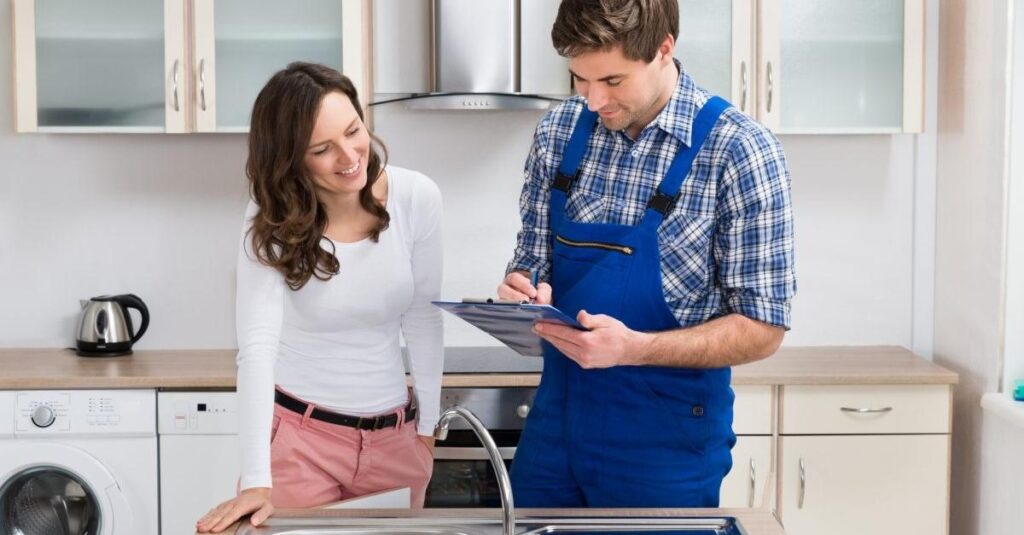Plumbers have the knowledge and experience to tackle various plumbing issues, from minor leaks to larger installations. Complete proper research to find a local plumber that provides the services you need. To help you better understand what a plumber does and when you might need one, here are a few commonly asked questions about plumbers and their services:
When Should I Call a Plumber?
Signs you should call a plumber include low water pressure, slow-draining sinks, or unusual pipe noises. Serious issues like backflow problems, mold growth, or unusually high water bills also warrant a plumbing appointment. If you experience recurring drain clogs or poor water flow, it’s time to seek professional help. For emergencies like mainline water breaks or sewer blockages, immediate help from a plumber is necessary. Knowing when to call a plumber helps prevent minor issues from escalating into major problems.
How Can I Prevent Plumbing Issues?
Regularly seek the services of local plumbers to check your pipes, faucets, and valves for leaks to prevent plumbing issues. Avoid pouring grease, oils, or food scraps down the drain, as these substances can cause blockages. Call professionals to address minor problems immediately before they become worse.
What Services Does a Professional Plumber Offer?
A professional plumber offers a wide range of services, including:
Automatic Shutoff Valves
These devices automatically stop the flow of water into your home when a leak or flood is detected, preventing extensive water damage. Plumbers install these valves and offer comprehensive services such as maintenance and repair. Some companies even provide monitoring systems linked to automatic shutoff valves for immediate action during emergencies. This service benefits homeowners seeking to protect their properties and promotes savings on potential repair costs.
Backflow Prevention
Backflow can cause severe damage, leading to contamination of your water supply. Plumbers offer comprehensive services such as installing, testing, repairing, and maintaining backflow preventers. They also provide evaluations to identify potential risks for backflow in your property’s plumbing system.
Bathroom Plumbing
Bathroom plumbing may involve installing, maintaining, and repairing sinks, faucets, showers, bathtubs, and toilets. Plumbers also handle more complex tasks like fixing leaks, unclogging drains, and repairing or replacing water heaters. They diagnose and solve bathroom-related plumbing issues with specialized tools and expertise, promoting a clean and safe environment.
Kitchen Plumbing
Kitchen plumbing may include installing, repairing, and maintaining sinks, faucets, garbage disposals, and dishwashers. Plumbers may also manage complex issues like leaks, clogs, and pipe repairs. Some plumbers offer consultations to identify potential problems and provide appropriate solutions.
Sump Pumps
A sump pump is a device used to prevent basement flooding and water damage. It’s installed in a specially constructed pit in the basement or crawlspace, where it automatically pumps out water that collects there. This plumbing service encompasses sump pump installation, repair, maintenance, and replacement. Professionals handle all makes and models, promoting optimal functionality. Plumbers may provide emergency services for urgent sump pump issues. They may also offer consultations to advise homeowners on the best sump pump options for their needs.
Water Lines
Plumbers use advanced techniques like pipe relining and trenchless repairs to minimize property damage. They also handle frozen, burst, or leaking pipes and can swiftly detect potential issues. Water line services also extend to gas lines, providing quality installation and repair.
Work With Reputable Plumbers Near You
When choosing a plumber, check if they offer the specific service you need. Assess their approach to safety, including adherence to local building codes and use of personal protective equipment. Look into their technological proficiency. Modern plumbers utilize advanced tools and techniques, like video pipe inspection or trenchless repairs, for efficiency and minimal disruption.






